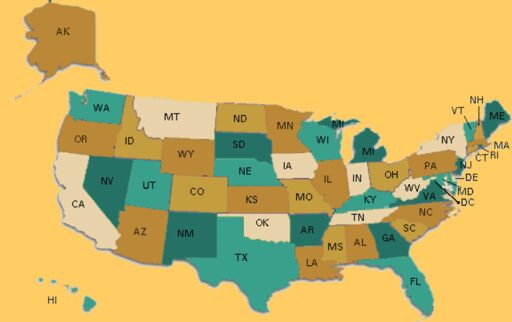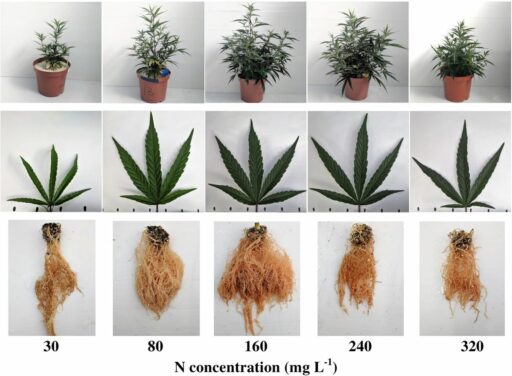The landscape of marijuana laws in Massachusetts underwent significant changes in 2018, reflecting a broader shift in societal attitudes and scientific understanding of cannabis. With the introduction of adult-use marijuana, the state established a comprehensive framework to regulate its cultivation, sale, and use, while also ensuring the continuation of medical marijuana programs. This guide delves into the complexities of these laws, offering a detailed examination of the regulatory environment, the medical marijuana system, home cultivation rules, educational initiatives, and the potential future developments in cannabis legislation.
Key Takeaways
- Massachusetts’ 2018 marijuana laws established a regulated framework for adult-use cannabis, including seed-to-sale tracking and diverse licensing opportunities.
- Medical marijuana regulations continue to offer benefits to cardholders, with distinctions from recreational use, emphasizing the importance of the endocannabinoid system.
- Home cultivation is permitted under specific guidelines, with resources available to ensure safety and compliance in manufacturing personal marijuana products.
- Educational campaigns and resources, such as official guides and prevention programs, are crucial for responsible adult use and youth protection.
- Future cannabis legislation in Massachusetts may be influenced by federal law changes, advancements in research, and evolving societal attitudes toward medical cannabis.
Navigating the Legal Landscape of Adult-Use Marijuana

Understanding the Seed-to-Sale Tracking
In Massachusetts, the transition to a regulated adult-use marijuana market has necessitated a robust seed-to-sale tracking system. All licensed establishments, from cultivators to retailers, are required to register and trace their products using the state’s designated technology, Metrc. This system ensures transparency and compliance throughout the product lifecycle, from growth to sale.
The sales data, which is aggregated in Metrc, is self-reported by the establishments and provides valuable insights into the market dynamics. For instance, the record-breaking sales figures for 2023 highlight the system’s role in capturing economic trends within the industry.
The seed-to-sale tracking not only safeguards the market but also serves as a critical tool for policy analysis and market oversight.
Understanding the flow of products through the system is crucial for both businesses and regulators. Here’s a snapshot of the adult-use gross sales totals, as reported in Metrc:
| Month | Sales ($) |
|---|---|
| Jan | 50,000,000 |
| Feb | 45,000,000 |
| Mar | 55,000,000 |
It’s important to note that while this data adds an important piece to the market puzzle, it also underscores the complexity of relying on self-reported figures. The accuracy of this data is vital for maintaining the integrity of the market and for informing future legislation.
Sales Data and Market Analysis
The Massachusetts marijuana market has seen significant growth since legalization, with a variety of data points available for analysis. Sales figures and market trends are crucial for understanding the economic impact of the industry. The Cannabis Control Commission provides self-reported data, which includes information on adult-use marijuana retailer sales and medical marijuana treatment center sales.
The following table summarizes key statistics for adult-use marijuana businesses:
| Business Type | Applications with Provisional Approval | Applications with Final Approval |
|---|---|---|
| Retailer | 150 | 100 |
| Cultivator | 120 | 80 |
| Manufacturer | 90 | 60 |
It is important to note that all data is self-reported and may not represent the Commonwealth’s tax earnings. Adjustments for voided transactions are made to ensure accuracy.
Public meetings conducted by the Cannabis Control Commission offer additional insights and are a valuable resource for staying informed about the evolving landscape of marijuana sales and regulations.
Licensing and Compliance Requirements
In Massachusetts, the journey to becoming a licensed marijuana establishment is marked by stringent compliance requirements. Entities must embrace the development of an appropriate internal company infrastructure to handle new regulations in a demonstration of good faith. This includes adopting Mitigation Strategies (REMS) to ensure that only qualified pharmacies receive and dispense cannabis products.
Compliance is not just about adhering to the rules; it’s about integrating them into the very fabric of the business to ensure sustainability and public safety.
The state mandates that operations must commence within 60 days of receiving a license, with the capability to dispense to five sites within six months. Cultivation must adhere to specific conditions, such as the exclusive or supplementary use of artificial light and prohibition of outdoor or direct ground planting. A detailed structure plan and security measures are also critical components of the licensing process.
Here is a list of categories that businesses must consider for compliance:
- Advertising and Promotion (Federal Trade Commission)
- Controlled Substances
- cGMP Compliance
- Drug Enforcement Administration
- Health Privacy
- Import/Export
Medical Marijuana in Massachusetts: An Overview

Comparing Medical and Recreational Use Regulations
The regulatory frameworks governing medical and recreational marijuana in Massachusetts are distinct, each with its own set of rules and implications for users. Medical marijuana patients are required to obtain a card, which verifies their eligibility to purchase and possess larger quantities of cannabis than recreational users. This card also often allows for access to a wider variety of products at dispensaries.
- Medical Use: Requires a state-issued medical marijuana card.
- Recreational Use: Available to adults 21 and over without a need for a card.
The nuances between medical and recreational cannabis laws reflect the state’s commitment to both public safety and patient access. While recreational use is subject to more general restrictions, medical use is closely monitored to ensure it aligns with health management goals.
As the conversation around cannabis evolves, so too does the understanding and acceptance of its medical applications. The medical community continues to explore the therapeutic potential of cannabis, often in the context of chronic pain management and other long-standing health issues.
Benefits of Holding a Medical Marijuana Card
Holding a medical marijuana card in Massachusetts offers a range of advantages, particularly in a state where recreational use is also legal. Cardholders can buy and use cannabis without fear of legal repercussions, ensuring peace of mind for patients who rely on marijuana for medical purposes.
- Enhanced legal protection: Medical marijuana cardholders are afforded certain legal protections that recreational users do not have.
- Access to higher potency products: Patients with a card may have access to cannabis products with higher THC levels, which are often necessary for therapeutic effects.
- Cost savings: Medical users can save on taxes and may be eligible for discounts that are not available to recreational consumers.
- Lower age restrictions: In some cases, medical cards allow younger patients with qualifying conditions to access cannabis.
- Priority access: During times of shortage, medical patients may be given priority over recreational consumers.
The importance of a medical marijuana card extends beyond the immediate benefits. It represents a commitment to regulated, safe access to cannabis for therapeutic use, and underscores the need for continued advocacy and education to ensure patients receive the care they need.
The quest for reciprocity across state lines remains a critical issue for cardholders who travel. The ability to use one’s medical marijuana card in another state can greatly enhance the continuity of care for patients with chronic conditions.
The Role of the Endocannabinoid System
The endocannabinoid system (ECS) is a complex network that plays a pivotal role in regulating a variety of physiological and cognitive processes. Central to this system are the cannabinoid receptors, CB1 and CB2, which are stimulated by cannabinoids. These receptors are distributed throughout the body and are particularly abundant in the brain.
- CB1 receptors are primarily found in the nervous system, affecting memory, mood, and pain sensation.
- CB2 receptors are associated with the immune system, influencing inflammation and pain.
Research has highlighted the therapeutic potential of targeting the ECS. For instance, in the realm of neurology, cannabinoids have shown promise in treating resistant forms of epilepsy. Similarly, the ECS’s interaction with gut health suggests a therapeutic opportunity for inflammatory bowel diseases.
The intricate relationship between the ECS and processes like emotion regulation, stress response, and fear processing underscores its significance. Anandamide, an endogenous cannabinoid, is particularly notable for its role in combating stress and fear.
Understanding the ECS is crucial, especially as we explore the medical applications of cannabis. The diversity of cannabinoids and their effects on the body is a testament to the complexity of this system. As research progresses, the potential to harness the full benefits of cannabis through the ECS becomes increasingly apparent.
Cultivation and Home Manufacturing: Rules and Safety

Guidelines for Growing Marijuana at Home
In Massachusetts, the cultivation of marijuana at home is subject to specific regulations to ensure safety and compliance with state laws. All cannabis must be grown indoors or in a secured area not visible to the public, using artificial light exclusively or as a supplement to natural sunlight. Outdoor cultivation or planting directly in the ground is prohibited.
The state has outlined clear criteria for home growers, including a detailed structure plan and security measures to prevent unauthorized access. It’s important to note that these guidelines are in place to protect both the cultivator and the community.
While the freedom to grow marijuana at home empowers individuals, it comes with the responsibility to adhere to the state’s safety and security protocols.
For those interested in home cultivation, the Massachusetts government provides educational resources, such as ‘The Guide to Growing Marijuana and Making Marijuana Products in Massachusetts (PDF)‘, which offers comprehensive information on the legal framework and best practices for home growers.
Producing Marijuana Products Legally
In Massachusetts, the legal production of marijuana products is a tightly regulated process. Individuals must adhere to specific guidelines to ensure compliance with state laws. For personal use, adults aged 21 and over are permitted to produce marijuana products, but there are clear limitations to what can be cultivated at home.
- You must be at least 21 years old to legally produce marijuana products at home.
- The law allows the cultivation of up to 6 plants per individual, with a maximum of 12 plants per household.
It is crucial to understand that any production beyond personal use can be subject to legal scrutiny and potential penalties.
While the state provides guidance on home cultivation, navigating the nuances of the law can be challenging. Producers must be aware of the legal boundaries to avoid inadvertently engaging in activities that could be considered illegal under federal law, such as distribution or sale without proper licensing.
Home Manufacturing Safety Tips
When engaging in home manufacturing of marijuana products, safety must be the top priority. Always ensure that your manufacturing space is well-ventilated to prevent the accumulation of any harmful fumes or combustible gases. Additionally, it’s crucial to keep all equipment and materials away from children and pets to avoid accidental ingestion or injury.
- Use protective gear such as gloves and goggles when handling chemicals or performing extractions.
- Store all flammable materials in a cool, dry place, away from direct sunlight and heat sources.
- Familiarize yourself with the local emergency services in case of an accident.
While the excitement of producing your own cannabis products can be enticing, never compromise on safety protocols. Regularly check and maintain your equipment to prevent malfunctions that could lead to hazardous situations.
Educational Resources and Prevention Campaigns

Responsible Adult Use Education
In Massachusetts, the responsible use of marijuana by adults is not just a legal mandate but a community effort to ensure safety and awareness. Education is key to preventing misuse and promoting a culture of responsible consumption.
- Understanding the legal age and purchase limits
- Recognizing the importance of not driving under the influence
- Identifying safe storage practices to prevent accidental ingestion, especially by children
- Knowing the health implications and risks associated with marijuana use
Responsible adult use education aims to equip individuals with the knowledge to make informed decisions about cannabis consumption while adhering to state laws and regulations.
Parental Guidance and Youth Prevention
In Massachusetts, the approach to youth prevention and parental guidance in the context of marijuana use is multifaceted. The state emphasizes the importance of informed parenting and provides resources to assist in these efforts. For example, the Massachusetts Clearinghouse offers free educational materials, including ‘The Parents Guide to Marijuana in Massachusetts’ (PDF), which serves as a valuable tool for parents navigating conversations about marijuana with their children.
To further support families, campaigns such as ‘Parent Tips and Youth Prevention’ offer actionable advice and strategies to prevent underage marijuana use. These initiatives underscore the state’s commitment to safeguarding the well-being of its younger residents while respecting the rights of adults to make responsible choices.
The focus on providing clear, accessible information and resources reflects a proactive stance towards preventing youth exposure to marijuana. It is crucial for parents to be equipped with knowledge and support to foster a safe environment for their children.
Additionally, organizations like the Bazelon Center advocate for models of youth support that do not involve law enforcement, promoting a community-based approach to crisis intervention. This aligns with the state’s broader goals of ensuring public safety and health without unnecessary criminalization.
Accessing Official Massachusetts Cannabis Guides
For residents and visitors in Massachusetts seeking authoritative information on cannabis regulations and guidelines, the Cannabis Control Commission Massachusetts provides a wealth of resources. The official website features a comprehensive collection of public documents, including licensing trackers, FAQs, and meeting materials, which are essential for staying informed about the state’s cannabis policies.
To access these resources, individuals can navigate through various sections such as ‘About’, ‘Open Data’, and ‘Research’. Notably, the ‘MassCIP’ and ‘Metrc’ systems play a crucial role in the seed-to-sale tracking of marijuana products, ensuring transparency and compliance within the industry.
The importance of utilizing official guides cannot be overstated. They serve as a reliable source for understanding the legal framework, safety regulations, and the latest developments in Massachusetts’ cannabis landscape.
Additionally, educational materials like ‘The Guide to Marijuana in Massachusetts’ and ‘The Parents Guide to Marijuana in Massachusetts’ are available for download. These guides provide valuable insights into responsible adult use, home manufacturing safety, and prevention strategies aimed at youth.
The Future of Cannabis Legislation in Massachusetts

Potential Impacts of Federal Law Changes
The interplay between federal and state marijuana laws is poised for significant transformation. Federal law changes could necessitate a reevaluation of state regulations to ensure they align with national standards. This alignment process may involve the revision of statutes and regulatory frameworks that currently govern the cannabis industry in Massachusetts.
Federal agencies, such as the IRS and EPA, will likely undergo policy revisions. For instance, the IRS may need to update its approach to business deductions for cannabis enterprises under Section 280E. Similarly, the EPA could be tasked with establishing new guidelines for pesticide use on marijuana crops, akin to those for hemp.
The potential for a shift in administrative law looms large, with the Supreme Court revisiting the Chevron deference. This could lead to more rigorous scrutiny of agency interpretations and a possible recalibration of the balance of power between the judiciary and federal agencies.
As legal precedents evolve, both federal and state courts will play a crucial role in interpreting and applying the law, particularly in areas where precedents may no longer hold sway post-rescheduling. The ripple effects of these changes will be felt across the legal landscape, impacting everything from taxation to environmental regulations.
The Role of State Legislators and Regulators
State legislators and regulators play a pivotal role in shaping the cannabis industry’s future. Their decisions can significantly influence the timeline and structure of marijuana legislation and regulation. With the industry’s rapid evolution, a flexible approach is essential to address the complexities of integrating state and potential federal laws.
- State lawmakers have the authority to amend initiated statutes, impacting rulemaking and licensing processes.
- Expertise from state regulators is crucial for developing new policies and guidance at the federal level.
- Collaboration between state and federal lawmakers can mitigate the risk and uncertainty within the industry.
The interplay between state and federal legislation is a delicate balance, requiring careful consideration and adaptability to ensure a coherent and effective regulatory framework.
As the cannabis landscape continues to shift, the role of state legislators and regulators becomes increasingly important. Their experience and knowledge are invaluable assets in navigating the intricacies of cannabis laws and ensuring that the industry thrives in a legally sound environment.
Advancements in Cannabis Research and Societal Attitudes
The landscape of cannabis research and societal attitudes is evolving rapidly, with significant strides being made in understanding the plant’s potential benefits and risks. As the body of scientific knowledge grows, so does public perception, reflecting a trend towards greater acceptance and curiosity about cannabis and its derivatives.
- The premier peer-reviewed journal, Cannabis and Cannabinoid Research, is at the forefront of this shift, providing a platform for the exploration of clinical cannabis.
- Studies are increasingly focusing on the long-term effects of cannabis use, which is crucial for informing public health decisions.
- A holistic approach to cannabis research considers the perspectives of professionals, skeptics, newcomers, and experienced users alike.
The dialogue surrounding cannabis is expanding, and with it, the need for continuous research and open communication to inform policy and public opinion.
The conversation about cannabis and mental health is complex, and while the science is compelling, it is clear that this is just the beginning of a much larger discussion. The once-taboo topic is now at the forefront, signaling a shift in societal norms and scientific inquiry.
Conclusion
The comprehensive guide to Massachusetts Marijuana Laws of 2018 has provided a detailed exploration of the state’s legal landscape as it pertains to cannabis. From the regulatory frameworks governing cultivation and product manufacturing to the nuances of adult-use sales and the importance of compliance with the seed-to-sale tracking system, Metrc, stakeholders have a wealth of information at their disposal. The state’s commitment to including both small and large participants in the industry, coupled with the ongoing need for education and adaptation to evolving laws, underscores the dynamic nature of cannabis legislation. As Massachusetts continues to navigate the complexities of marijuana regulation, it remains crucial for all involved—be it consumers, producers, or legislators—to stay informed and engaged with the legal shifts that shape the industry. The journey towards a harmonized approach to cannabis, both medically and recreationally, is ongoing, and Massachusetts’ laws of 2018 mark a significant milestone in this evolving narrative.
Frequently Asked Questions
What is the seed-to-sale tracking system used in Massachusetts?
In Massachusetts, all licensed adult-use marijuana establishments must register and trace their products using the Commonwealth’s seed-to-sale tracking technology, Metrc. This system provides an aggregated snapshot of sales data and ensures compliance with state regulations.
Are there any benefits to holding a medical marijuana card in Massachusetts?
Yes, there are several benefits to obtaining a medical marijuana card in Massachusetts, including access to a wider range of products, potential tax advantages, and higher possession limits compared to recreational use.
What are the guidelines for growing marijuana at home in Massachusetts?
Massachusetts law allows adults to grow a limited number of marijuana plants at home for personal use. Guidelines and safety regulations are provided in ‘The Guide to Growing Marijuana and Making Marijuana Products in Massachusetts (PDF)’ available through official resources.
Where can I find educational resources on responsible marijuana use in Massachusetts?
Educational resources, including campaign videos and materials such as ‘The Guide to Marijuana in Massachusetts (PDF)’ and ‘The Parents Guide to Marijuana in Massachusetts (PDF)’, are available for free at the Massachusetts Clearinghouse and official state websites.
How might federal law changes impact Massachusetts cannabis legislation?
Changes in federal law could significantly impact Massachusetts cannabis legislation. State lawmakers may need to amend existing laws to align with federal regulations, which could affect licensing processes, industry participation, and overall legal compliance.
What is the role of the endocannabinoid system in medical marijuana use?
The endocannabinoid system consists of receptors throughout the body that help maintain balance (homeostasis). Medical marijuana interacts with this system, providing therapeutic effects for various conditions due to the presence of cannabinoids like THC and CBD.





